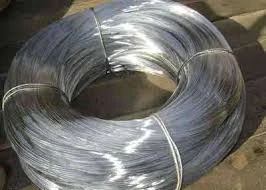Choosing the Right Nails for Your Fence Pickets Installation
Understanding the Types of Nails for Fence Pickets
Constructing a sturdy and enduring fence is no small task, and one of the critical components in achieving this is selecting the appropriate type of nails for your fence pickets. The right nails not only ensure the stability of your fence but also play a significant role in its longevity and overall aesthetic appeal. In this article, we will explore the various types of nails suitable for fence pickets, their characteristics, and how to choose the best one for your fencing project.
1. Common Nails
Common nails are perhaps the most widely used nails for general construction purposes, including fence pickets. They are typically made of steel and have a thick shank, which provides excellent holding power. Common nails are also relatively affordable, making them a popular choice among DIY enthusiasts and professionals alike. However, when using common nails outdoors, it's essential to consider corrosion. Galvanized common nails, which are coated to resist rust, are an excellent choice for outdoor applications where moisture is a concern.
2. Finish Nails
Finish nails are smaller than common nails and have a smaller head, making them ideal for projects where aesthetics are important. These nails are often used when a neat, finished appearance is desired, such as when attaching pickets to rails. However, while finish nails can be used for fencing, they're generally not recommended for high-stress areas due to their smaller size and reduced holding power compared to common nails. When using finish nails for fence pickets, ensure that they are galvanized to withstand the elements.
Ring shank nails feature ridges or rings along the shank, providing superior grip and holding power compared to smooth shank nails. This type of nail is particularly well-suited for applications where resistance to loosening from vibration or movement is required. For fence pickets, ring shank nails are an excellent choice as they help keep the pickets secure over time, even in windy conditions.
type of nails for fence pickets

4. Spiral Shank Nails
Similar to ring shank nails, spiral shank nails have a twisted shank design that enhances grip and reduces the risk of pull-out. These nails are particularly useful in softwood applications, which can sometimes struggle to hold regular nails securely. When building a fence, using spiral shank nails can provide extra durability, ensuring that your pickets remain properly anchored regardless of the weather.
5. Casing Nails
Casing nails are longer than finish nails and have a larger head, providing good holding power while also allowing for a concealed finish. They are somewhat thicker than finish nails, making them suitable for fence pickets where additional strength is required. Like other nails, ensuring that casing nails are galvanized is crucial for outdoor projects to prevent rust and degradation over time.
6. Nail Size and Length
Choosing the right length and gauge of nails for your fence pickets is just as important as selecting the right type. Generally, nails should be at least 2.5 to 3 inches long to properly penetrate through the picket and into the fence rail, creating a secure connection. A thicker gauge will provide greater strength, especially for larger, heavier pickets.
Conclusion
In conclusion, selecting the right type of nails for your fence pickets is essential for ensuring a sturdy and lasting structure. Whether you opt for common, finish, ring shank, spiral shank, or casing nails, always consider factors such as corrosion resistance and suitable length to achieve optimal results. By making informed decisions regarding your materials, you can create a beautiful, durable fence that will withstand the test of time.
-
Innovations in Razor Barbed Wire Design TechnologyNewsAug.11,2025
-
Roofing Nail Compatibility with Different Metal Roof TypesNewsAug.11,2025
-
Welded Wire Mesh for Rockfall Protection BarriersNewsAug.11,2025
-
Galvanized Wire Corrosion Resistance TestingNewsAug.11,2025
-
3D Fence Solutions Preventing Bird CollisionsNewsAug.11,2025
-
Using Chain Link Fence for Urban Garden SupportNewsAug.11,2025




